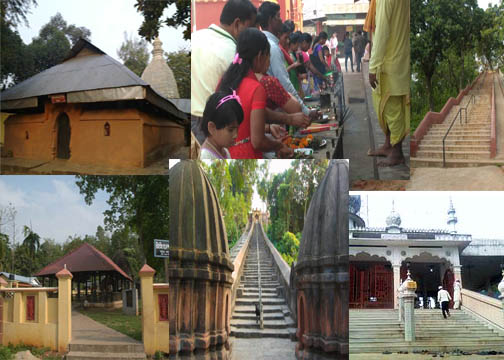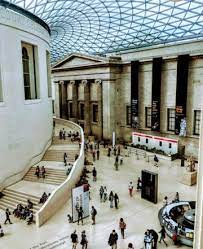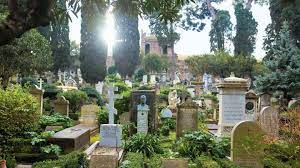Among the myriad of cultural gems scattered across Bangladesh, our temples stand out as the embodiment of artistic finesse and religious devotion. From the serene island on the Bay of Bengal to the bustling streets of Dhaka, each temple tells a unique tale, resonating with the echoes of bygone centuries, and their intricate designs bear witness to the incredible artistic skill of our ancestors. So, join us as we explore the stories behind five of these beautiful structures, where devotion meets craftsmanship, and spirituality converges with stunning aesthetics, creating a tapestry of religious diversity and architectural splendour in the heart of our beloved multicultural nation.
Kantaji Temple, Dinajpur
Including Kantaji Temple in any list of must-visit temples in Bangladesh is kind of inevitable, and there are good reasons for it. Renowned as perhaps the most exquisite terracotta temple in the country, this architectural gem was constructed in the late 18th century under the patronage of Maharaja Pran Nath of Dinajpur.
Dedicated to Lord Krishna and his consort Rukmini, the temple, following the Navaratna style, originally featured nine spires and stood proudly on a raised platform. Unfortunately, a devastating earthquake in 1897 claimed all its spires, yet the intricate terracotta embellishments narrating tales and scenes from Hindu puranas endured.
Despite the devastating earthquake, the temple’s artistic beauty withstood the ravages of time with the help of successful restoration efforts that safeguarded the better parts of its architectural grandeur. Located just 12 kilometres outside Dinajpur town, local transportation to this temple is readily available for all visitors.
Puthia Temples, Rajshahi
Puthia, a small upazila in Rajshahi Division, features a captivating collection of beautiful and historically significant temples. Foremost among these hidden gems is the Govinda Temple, distinguished by its unique design and intricate ornate carvings. Featuring ‘charchala’ towers, an architectural style originating in Bengal, and later influencing the entire Indian subcontinent, the temple stands as a testament to the region’s cultural influence and heritage.
A leisurely stroll from there will lead visitors to the Bhubaneshwar Shiva Temple, a monumental structure overlooking the picturesque Shiv Sagar Lake, demonstrating the grandeur of the ‘Pancharatna’ temple style. However, no exploration of Puthia’s temples would be complete without a visit to the ‘Dolmancha,’ a uniquely curved temple designed for the festivities of the traditional Bengali Rath Jatra festival.
Interested travellers can easily reach Puthia by local transportation, and do not forget to include the Jagannath temple and Chota Ahnik temple to your visit list while you are at it!
Kodla Matha, Bagerhat
Situated in a secluded hamlet within the Bagerhat district, the Kodla Matha stands as an extraordinary yet relatively lesser-known temple in Bangladesh. Despite its common association with the Shikhara architectural style, the reality is that Kodla Matha features a distinct design, unparalleled in the Indian subcontinent and essentially constituting a genre of its own.
The temple’s structure comprises a chamber with dimensions of approximately 3 metres, featuring 2-metre-thick walls and entrances on each side, except the north, with the primary doorway facing south. The arches on the doorway are of corbelled type, while the pendentives are constructed with true pointed arches, providing support to the semi-circular dome within. The exterior of the temple takes on a surprising polygonal form, adorned with intricate floral patterns within the five recesses on either side of the central face.
The mysterious origins of this exceptional temple add to its allure, with no definitive attribution to its builder. Fragmented inscriptions on the walls suggest a potential association with a Brahman, but no definite names could be ascertained. Travellers seeking the Kodla Matha will find it nestled in Ayudha village, approximately 17 kilometres outside the Bagerhat district and local transportation is available from the city.
Bought your Cox’s Bazar train ticket? Here are places to visit when there
Photo: Nahid Sarwar
Adinath Temple, Cox’s Bazar
Nestled atop Mainak Hill on the southern part of Maheshkhali Island in Cox’s Bazar, the Adinath Temple stands as one of the finest temples dedicated to Lord Shiva. Offering a breath-taking panoramic view of the ocean from its hilltop location, this temple creates an unparalleled ambiance of serenity for visitors.
The temple’s architectural style reflects a harmonious fusion, drawing influences from the distinctive designs of the ‘Natha’ community. At the base of the temple hill, a vibrant festival unfolds every year during the Bengali month of ‘Falgun,’ spanning 13 days and attracting thousands of pilgrims from across the country.
To embark on this spiritual and scenic journey, visitors can access Maheshkhali Island by boat from Cox’s Bazar, and upon reaching the island, ascend the Mainak Hill to discover the allure of the Adinath Temple.
File photo
Dhakeshwari National Temple, Dhaka
Located at the heart of Dhaka city, the Dhakeshwari National Temple stands as one of the most famous Hindu temples in Bangladesh, bearing remarkable cultural and historical significance. With roots tracing back to the 12th century, it is deemed the oldest temple in the city.
Devoted to the Hindu goddess Dhakeshwari, an incarnation of Goddess Durga, revered as the guardian of Dhaka, the temple has served as a spiritual anchor for centuries. Initially constructed in the “Pancharatna” style by King Ballal Sen, the ancient temple underwent renovations in the 1960s, altering its original appearance. The temple complex now also includes four Shiva temples, showcasing a blend of ‘charchala’ and ‘shikhara’ architectural styles.
In recognition of its significance for Hindu culture and worship in Bangladesh, the temple was officially designated as the ‘National Temple’ in 1996. Conveniently positioned in the capital city of Dhaka, the temple is easily accessible via various modes of transportation.


